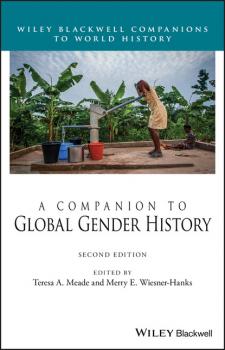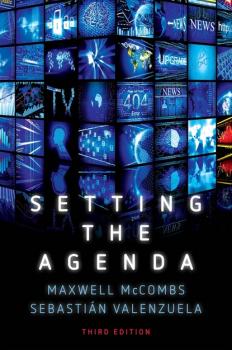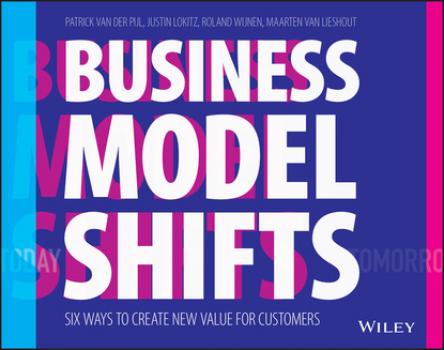MREADZ.COM - много разных книг на любой вкус
Скачивание или чтение онлайн электронных книг.A Companion to Global Gender History
Provides a completely updated survey of the major issues in gender history from geographical, chronological, and topical perspectives This new edition examines the history of women over thousands of years, studies their interaction with men in a gendered world, and looks at the role of gender in shaping human behavior. It includes thematic essays that offer a broad foundation for key issues such as family, labor, sexuality, race, and material culture, followed by chronological and regional essays stretching from the earliest human societies to the contemporary period. The book offers readers a diverse selection of viewpoints from an authoritative team of international authors and reflects questions that have been explored in different cultural and historiographic traditions. Filled with contributions from both scholars and teachers, A Companion to Global Gender History, Second Edition makes difficult concepts understandable to all levels of students. It presents evidence for complex assertions regarding gender identity, and grapples with evolving notions of gender construction. In addition, each chapter includes suggestions for further reading in order to provide readers with the necessary tools to explore the topic further. Features newly updated and brand-new chapters filled with both thematic and chronological-geographic essays Discusses recent trends in gender history, including material culture, sexuality, transnational developments, science, and intersectionality Presents a diversity of viewpoints, with chapters by scholars from across the world A Companion to Global Gender History is an excellent book for upper-level undergraduate and graduate students involved in gender studies and history programs. It will also appeal to more advanced scholars seeking an introduction to the field.
After Law
Law is the most sacred fetish of our time. From radicals to conservatives, there is no militant, activist or thinker who would consider doing without it. But the history of our fascination with law is long and complex, and reaches deeper into our culture than we might think. In After Law , Laurent de Sutter takes us on a journey to uncover the sources of our fascination. He shows that at a certain moment in our history a choice was made to treat law as a decisive feature of civilization, but this choice was neither obvious nor necessary. Other political, social, religious or cultural possibilities could have been chosen instead – from ancient Egypt to Mesopotamia, from medieval Japan to China, from Islam to Judaism, other cultures have devised sophisticated tools to help people live together without having to deal with norms, rules and principles. This is a lesson worth reflecting on, especially at a time when the rule of law and the functioning of justice are increasingly showing their sinister side – and their impotence. Is there life beyond law?
Functional Metal-Organic Frameworks
Owing to the extensive interest in construction of functional metal organic frameworks (FMOFs), this book discusses the roles of functional groups on the structure and application of metal organic frameworks (MOFs). The contents of the book are classified based on the structural and chemical properties of organic functions, in order to make readers able to compare the different effects of each function on the structure and application of the MOFs. In each chapter, the chemical properties of applied functional groups are gathered to give deeper insight into the roles of organic functions in the structure and application of MOFs. In the function-application properties, the authors discuss how a functional group can dominate the host-guest chemistry of the MOFs and how this host-guest chemistry can expand the effectiveness and efficiency of the material in different fields of applications. Finally, function-structure properties are discussed. In function-application properties, it is discussed how a functional group can affect the topology, porosity, flexibility and stability of the framework. The features of this subject are novel and are presented for the first time.
Setting the Agenda
News media strongly influence how we picture public affairs across the world, playing a significant and sometimes controversial role in determining which topics are at the centre of public attention and action. Setting the Agenda , first published in 2004, has become the go-to textbook on this crucial topic. In this timely third edition, Maxwell McCombs – a pioneer of agenda-setting research – and Sebastián Valenzuela – a senior scholar of agenda setting in Latin America – have expanded and updated the book for a new generation of students. In describing the media's influence on what we think about and how we think about it, Setting the Agenda also examines the sources of media agendas, the psychological explanation for their impact on the public agenda, and their consequences for attitudes, opinions and behaviours. New to this edition is a discussion of agenda setting in the widened media landscape, including a full chapter on network agenda setting and a lengthened presentation on agenda melding. The book also contains expanded material on social media and the role of agenda setting beyond the realm of public affairs, as well as a foreword from Donald L. Shaw and David H. Weaver, the co-founders of agenda-setting theory. This exciting new edition is an invaluable source for students of media, communications and politics, as well as those interested in the role of news in shaping and directing public opinion.









